My journey to the Chernobyl exclusion zone/Мое путешествие в Чернобыльскую зону отчуждения
This year marks the 30th anniversary of the accident at the Chernobyl nuclear power plant, which occurred on April 26, 1986. The accident is regarded as the largest in its kind in the history of nuclear energy, both in terms of the estimated number of people killed and affected by its consequences, and economic damage. During the first three months after the accident, 31 people died; The long-term effects of irradiation, revealed over the next 15 years, caused the deaths of 60 to 80 people. 134 people suffered radiation sickness of one degree or another. More than 115 thousand people from the 30-kilometer zone were evacuated. To eliminate the consequences, significant resources were mobilized, more than 600 thousand people participated in the liquidation of the consequences of the accident.
As a result of the accident, about 5 million hectares of land were removed from the agricultural turnover, around the NPP a 30-kilometer exclusion zone was created, hundreds of small settlements were destroyed and buried (heavily buried).
After assessing the extent of radioactive contamination it became clear that the evacuation of the city of Pripyat, which was held on April 27, would be required. In the first days after the accident, the population of the 10-kilometer zone was evacuated. In the following days, the population of other settlements of the 30-kilometer zone was evacuated. It was forbidden to take things with them, children's favorite toys, and so on, many were evacuated in their home clothes. In order not to inflate the panic, it was reported that the evacuees would return home in three days. Pets were not allowed to take with them.
Today the city of Pripyat has become a ghost town.
I'll begin my travel history from the fact that she was in 2016 in September. We left Kiev and somewhere in 2 hours we were already at the checkpoint Dityatki. After successfully passing the passport control, we went further. The first place we drove was the fire department of Chernobyl and a small exposition of robotics that took part in the liquidation of the consequences of the Chernobyl disaster 1086-1987.
Photo of the monument in honor of the firefighters who participated in the liquidation of the disaster and photo robotics.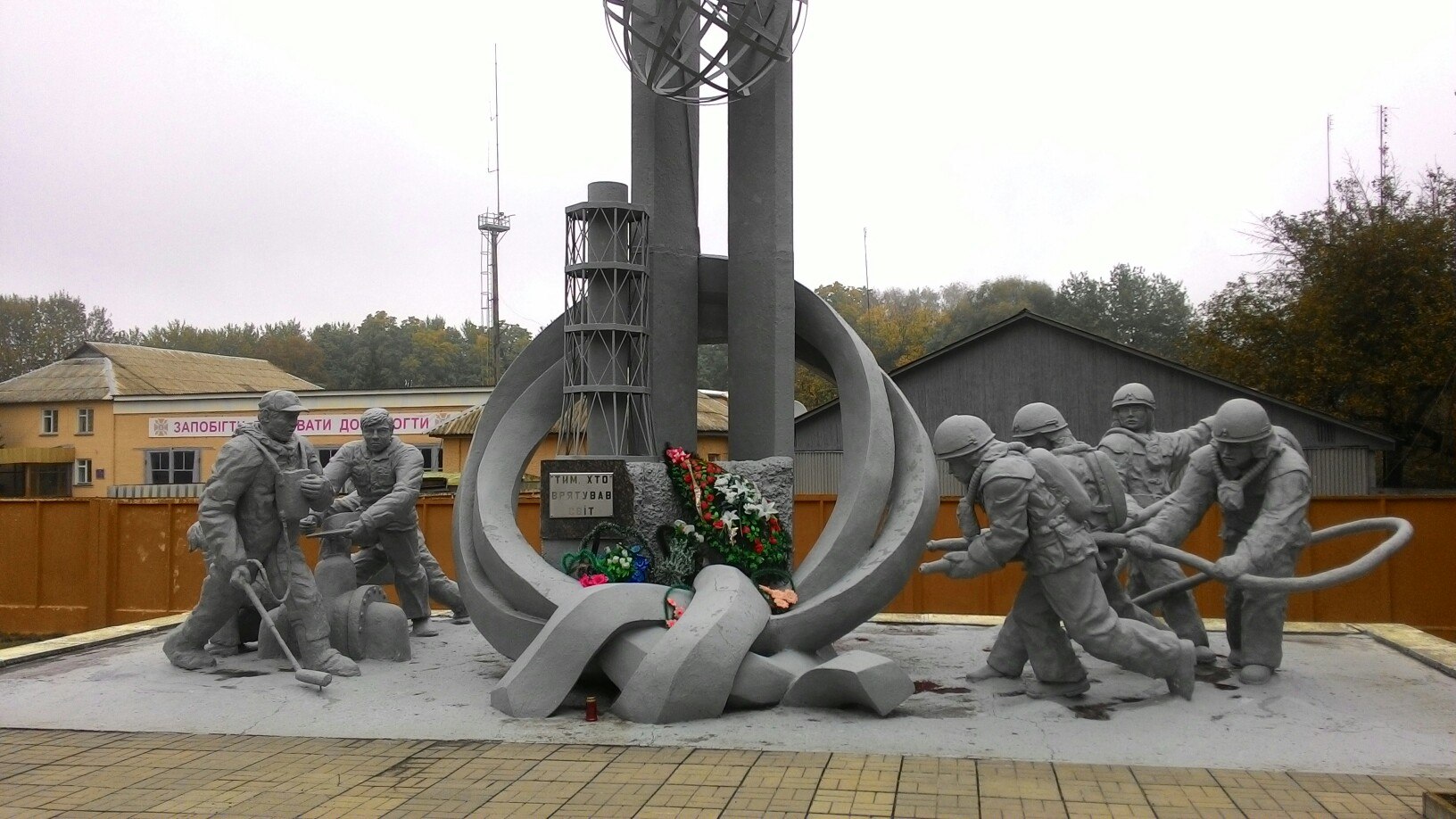
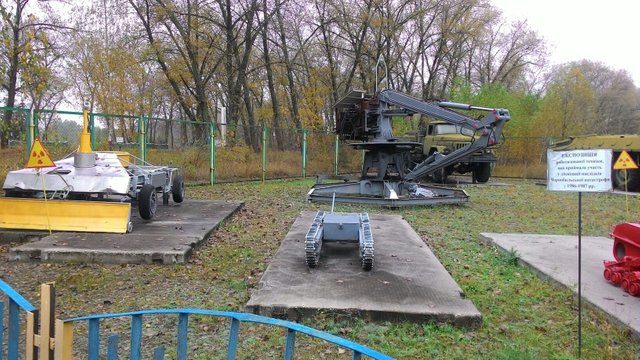
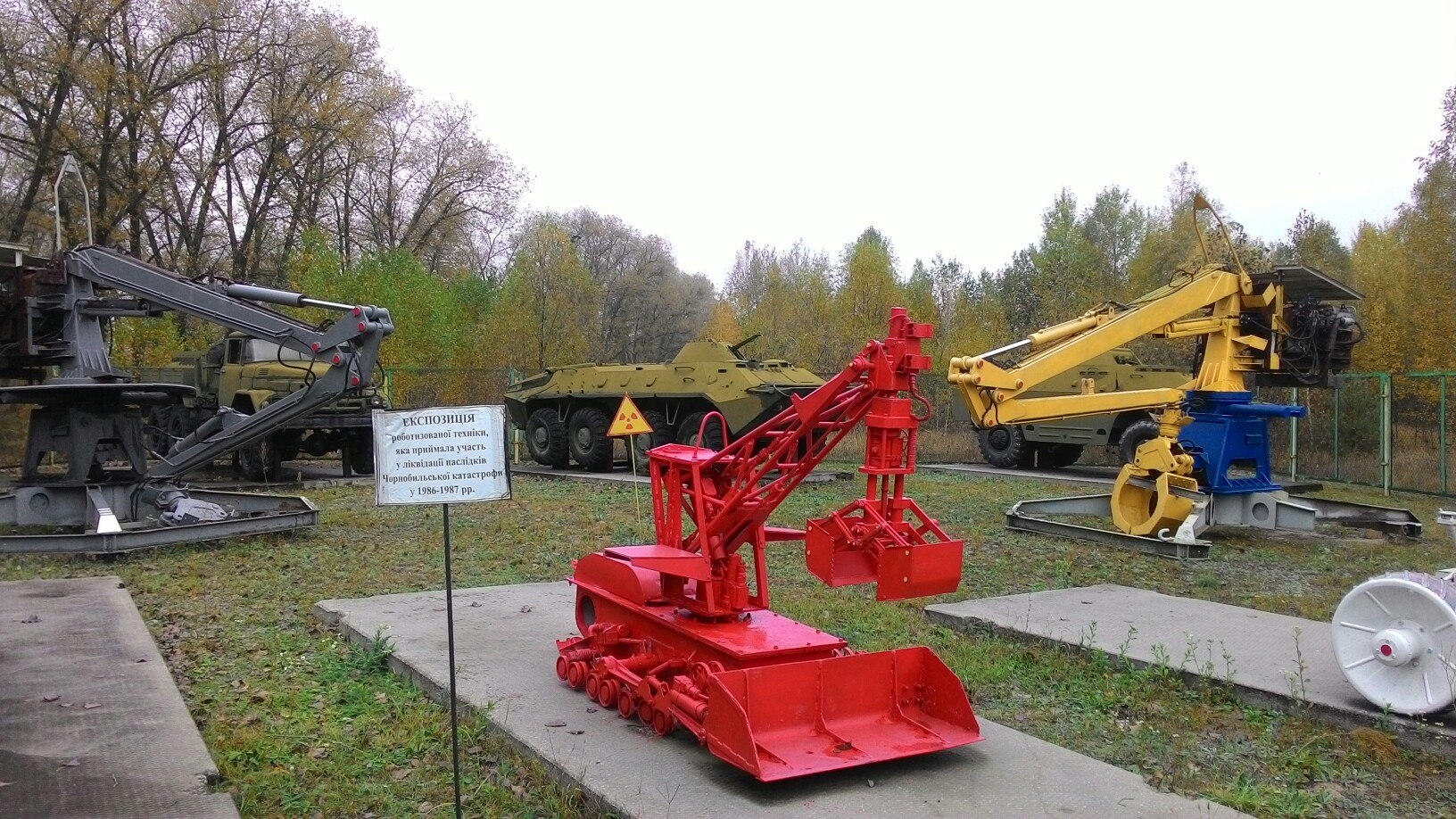
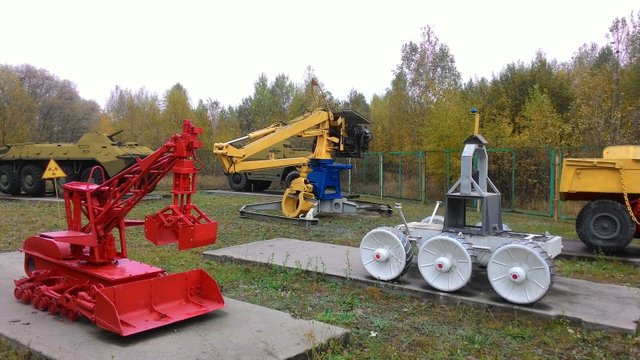
Next, we continue our trip to a secret facility called Chernobyl-2, which is also Duga (radar station). In the seventies of the last century, the military created unique radar systems that allowed tracking ballistic missile launches from territories (military bases and submarines) of the probable enemy. The station is located on the territory of the military town.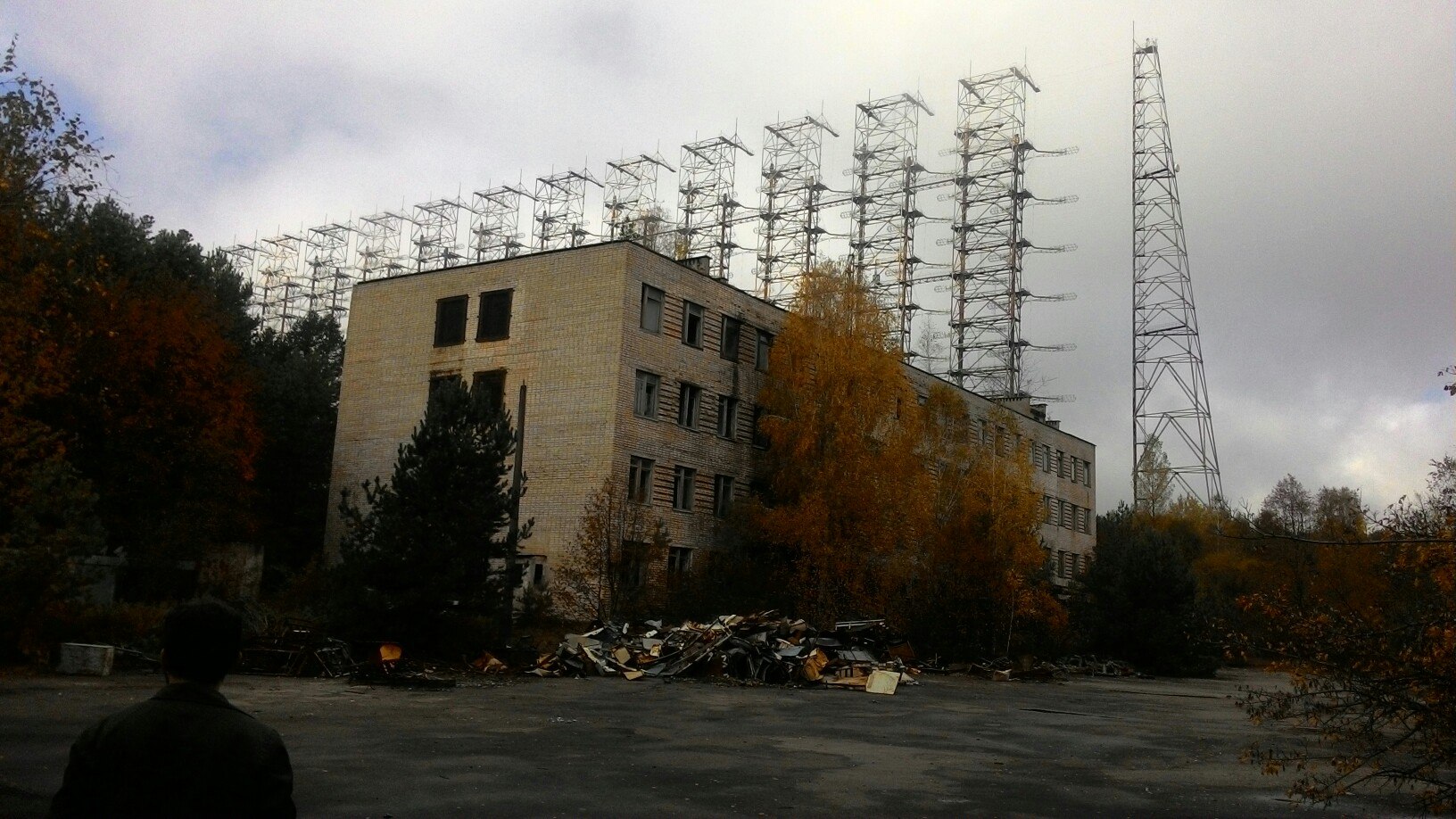
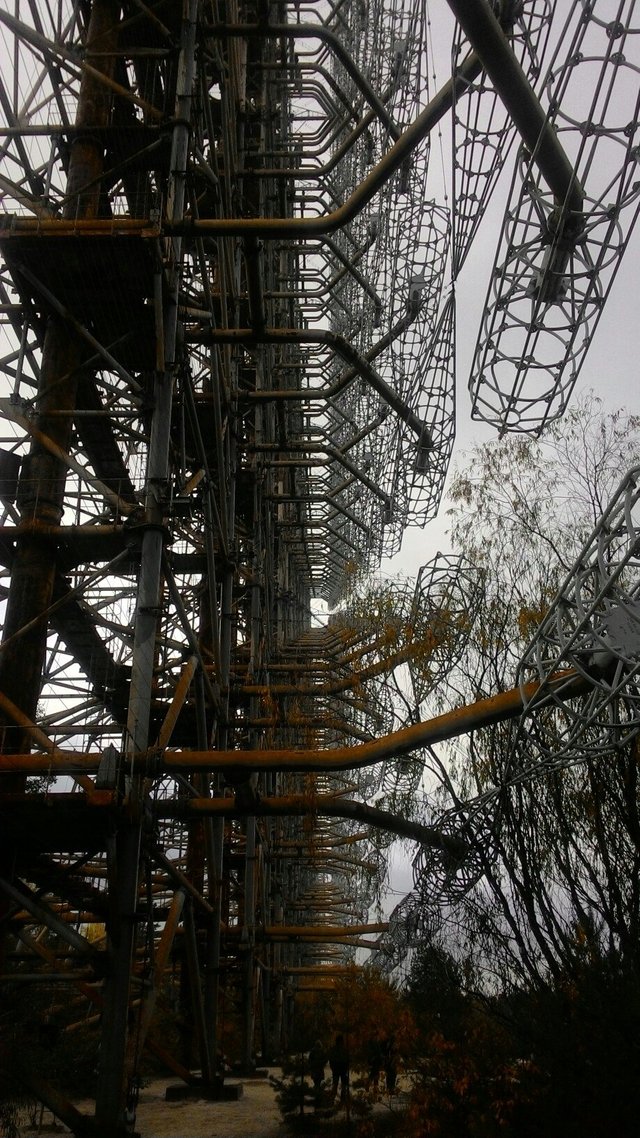
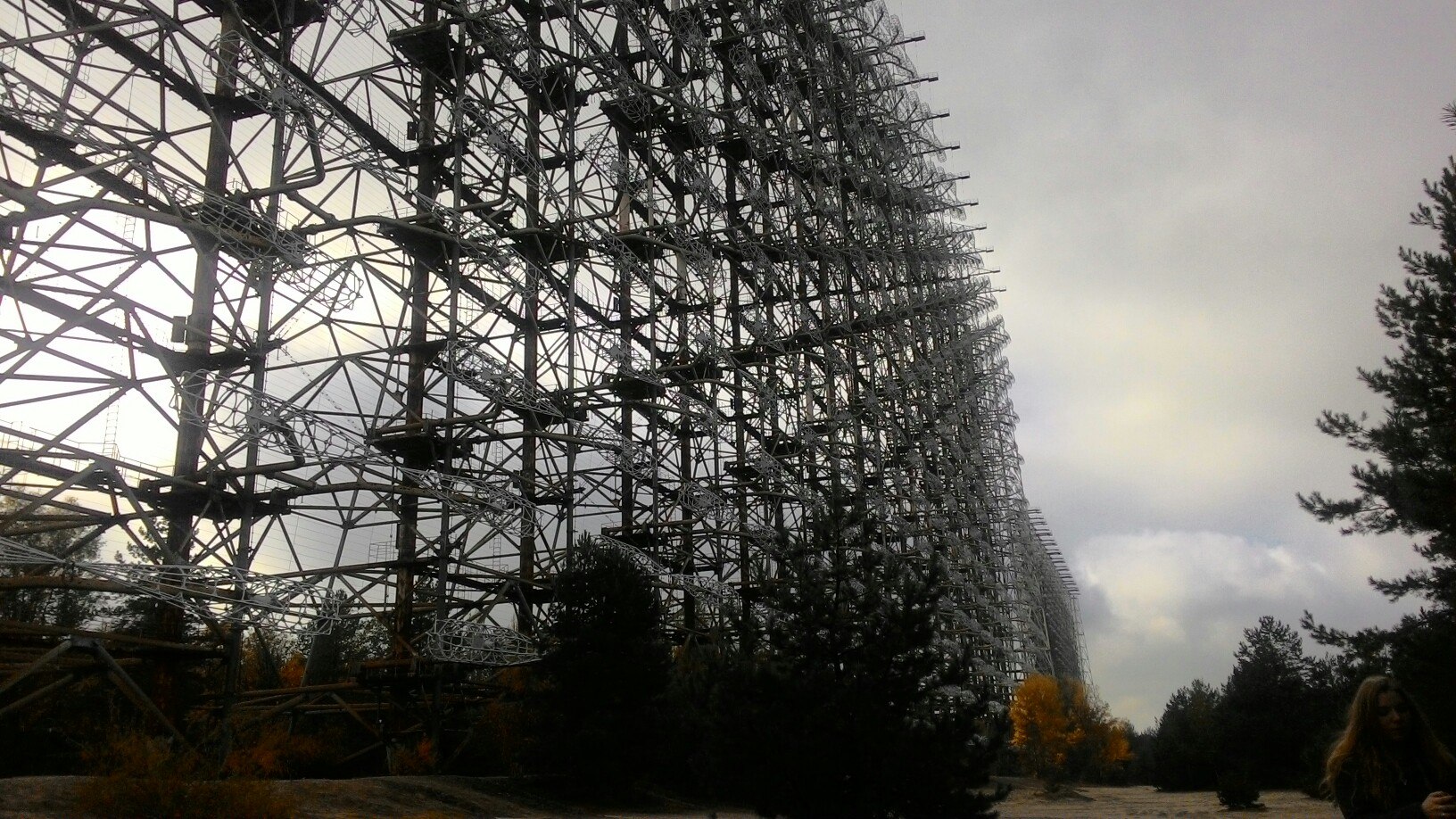.jpg)
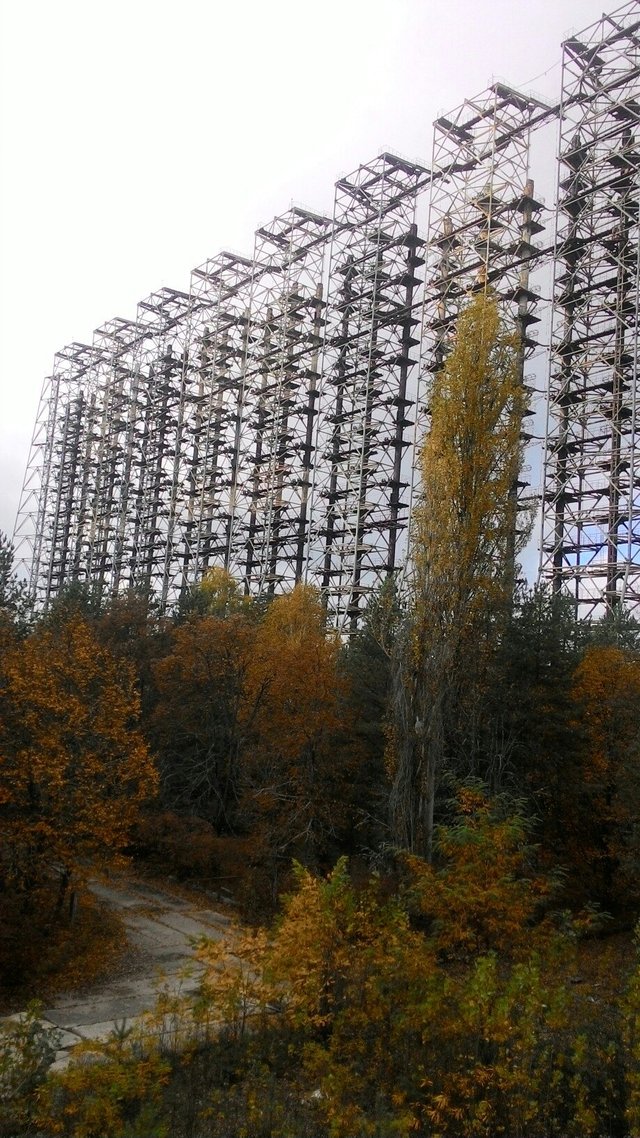
After inspecting the whole territory, we continue the journey and make a stop near the kindergarten and measure the radiation in the ground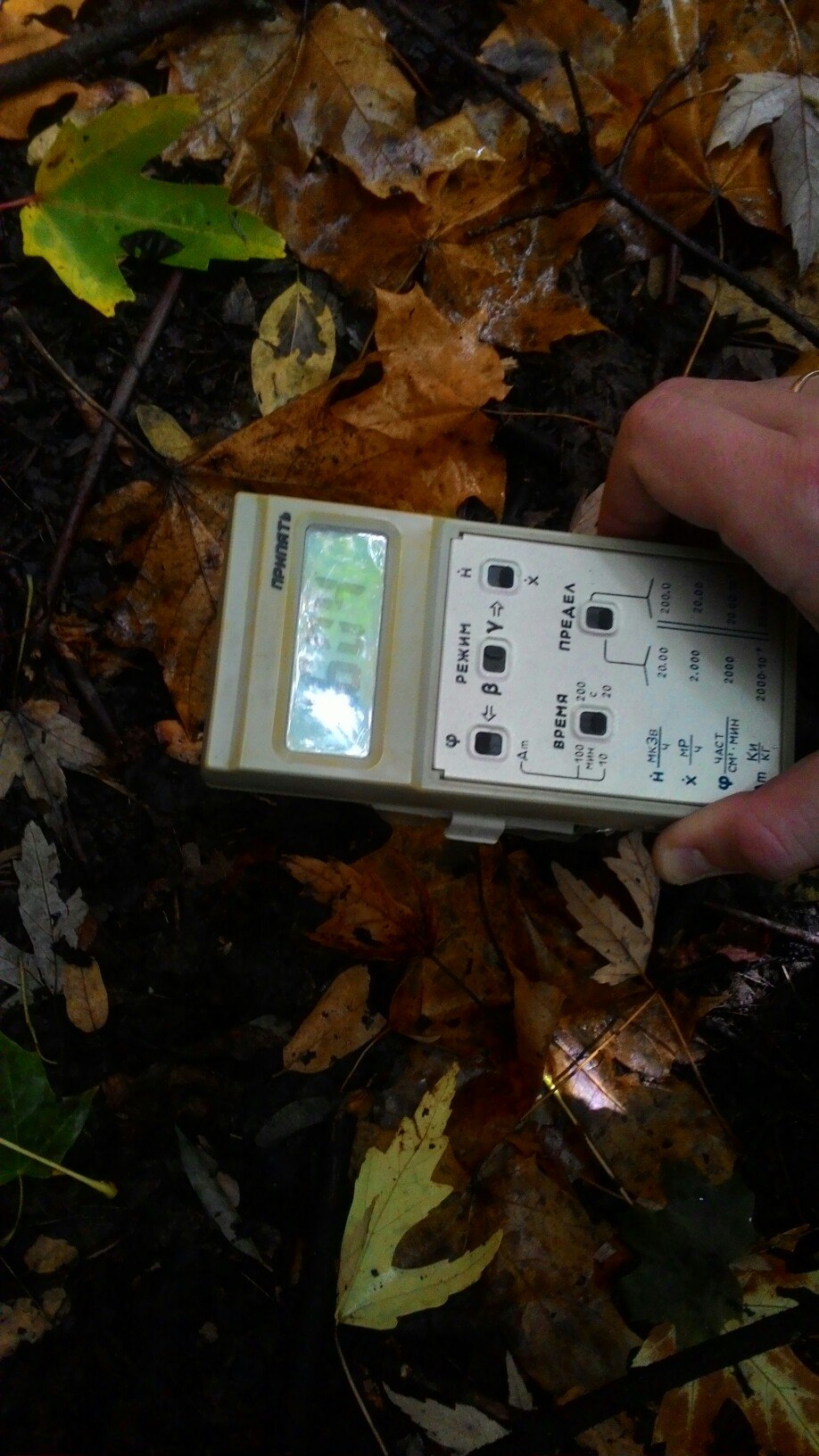
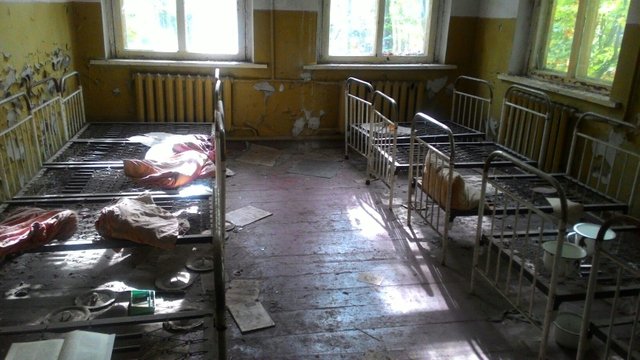
We go further))) and visit the not completed tower for cooling the reactor.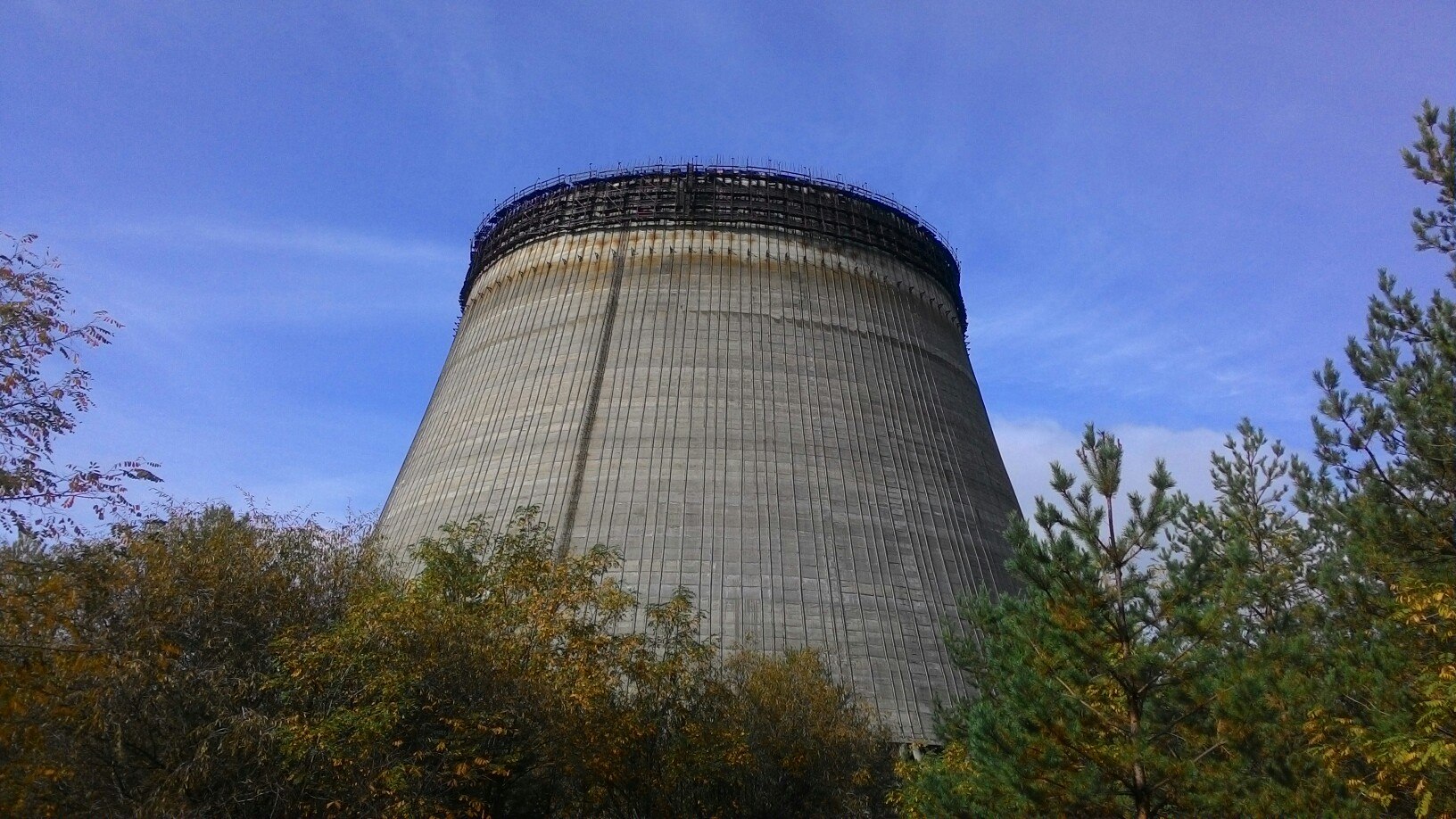
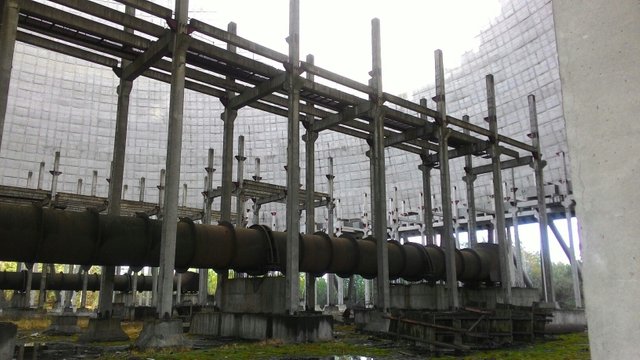
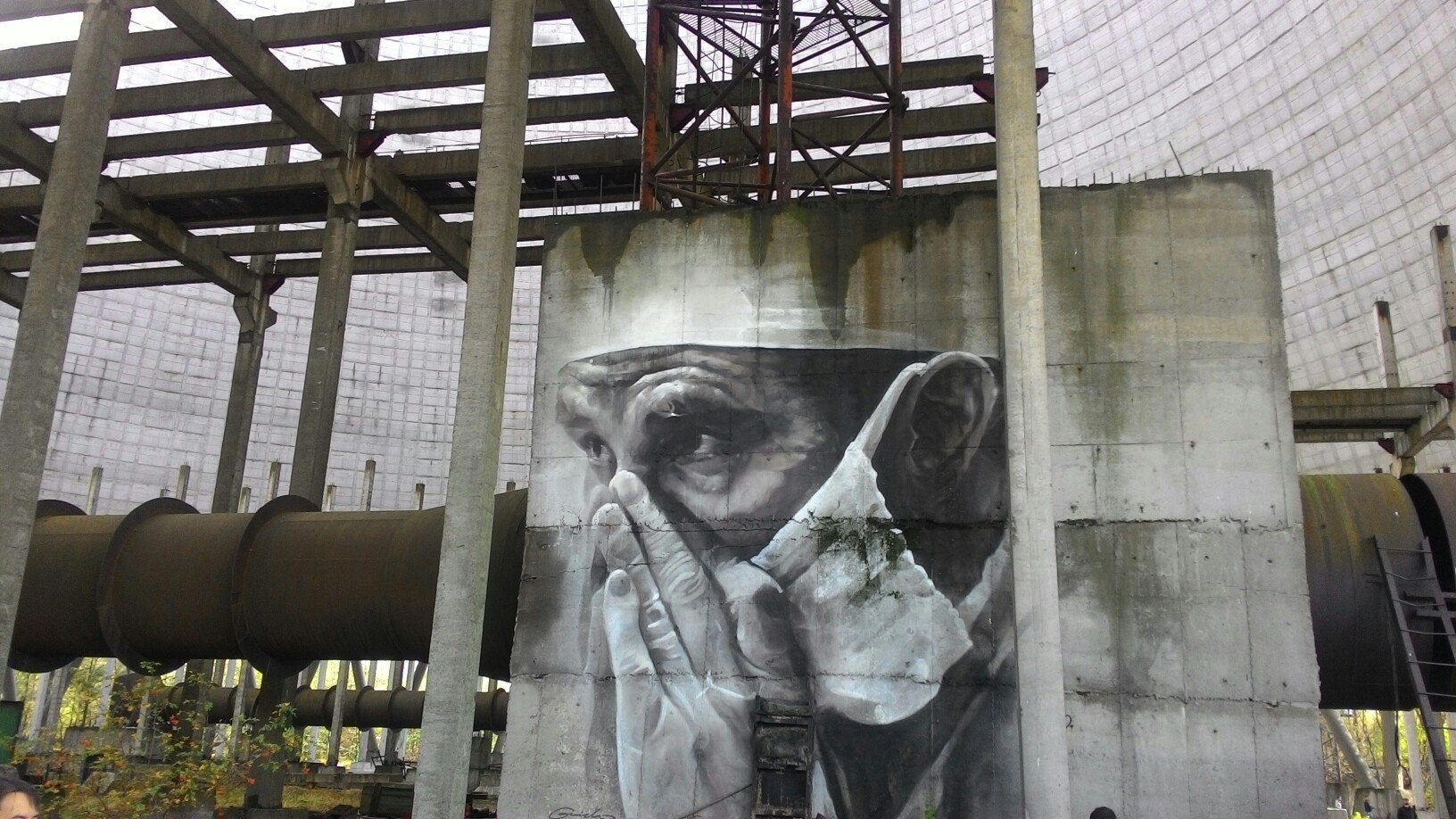
And finally we reached the long-awaited station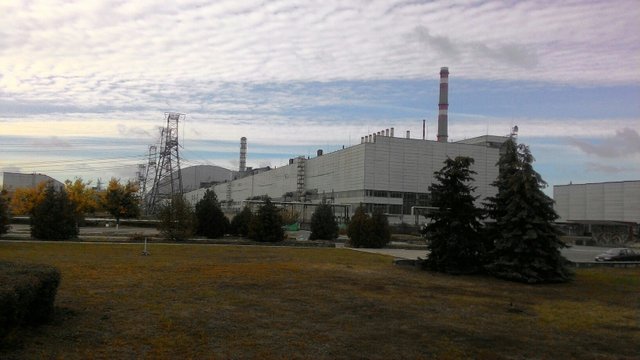
After a small stop and feeding the catfish that live in a pond that is designed to cool the reactors. We came to the very 4th unit where the fire took place.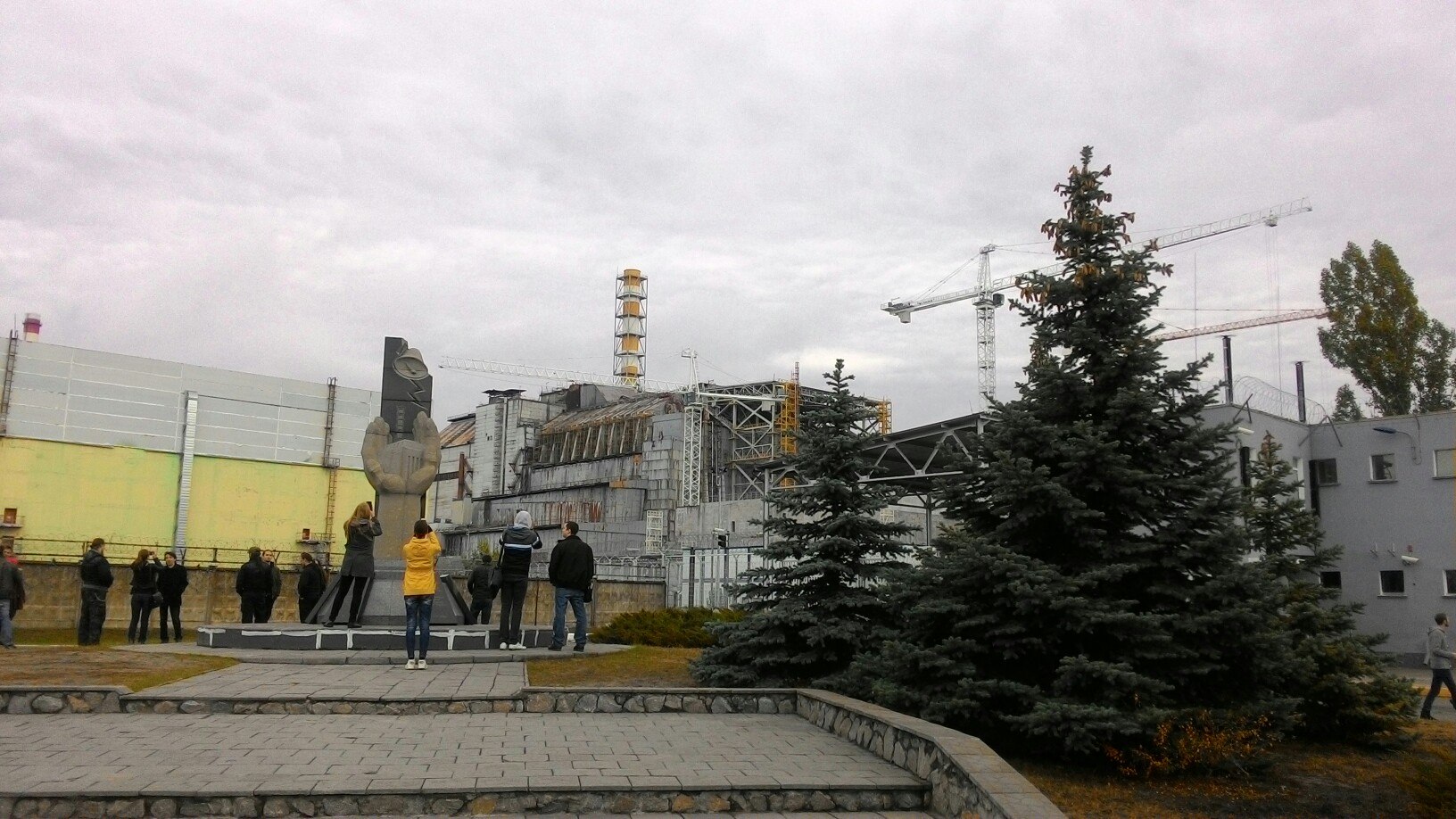
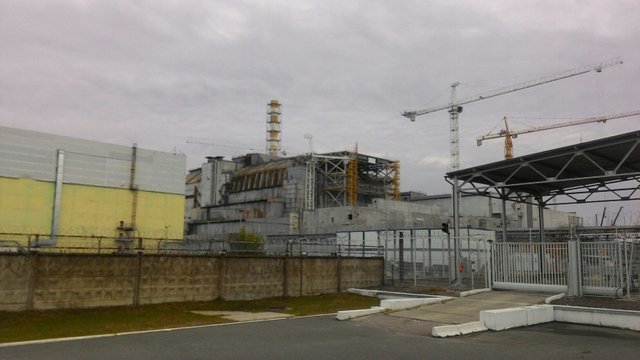
Then we measure the radiation background.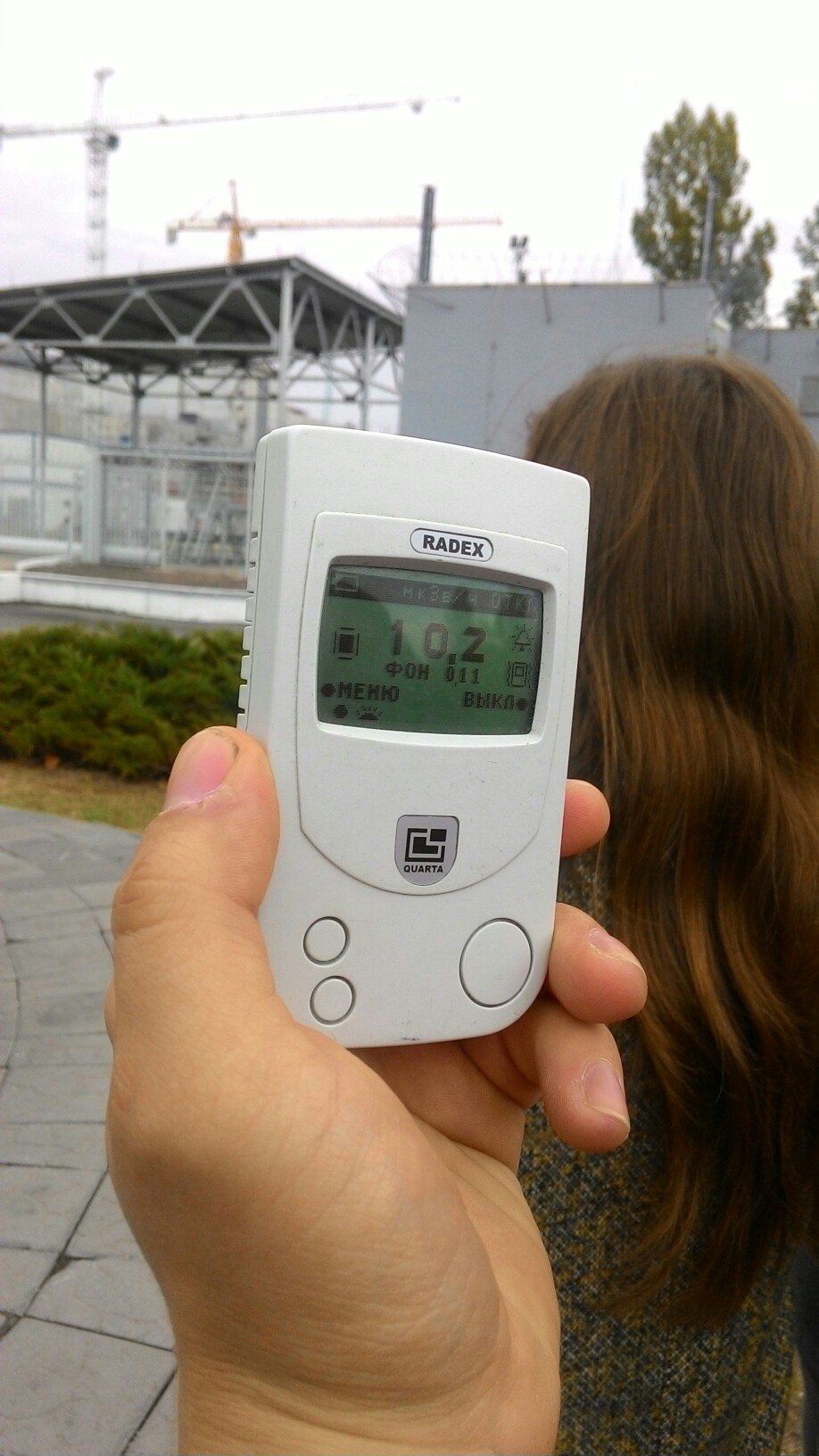
And here is a new sarcophagus which has already been covered by the fourth power unit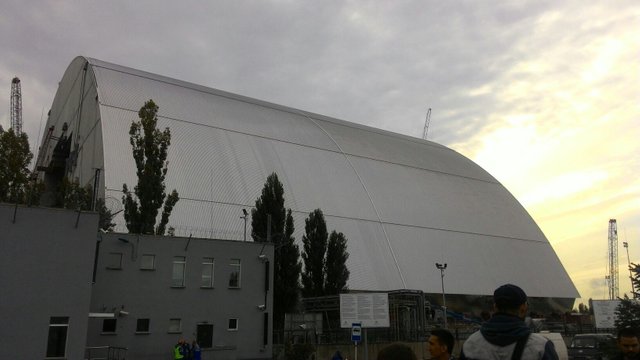
I was there before covering 4 of the power unit and managed to see it with my own eyes))) I think everyone dreamed to go there who saw documentaries or played S.T.A.L.K.E.R. Here is a photo of the already covered reactor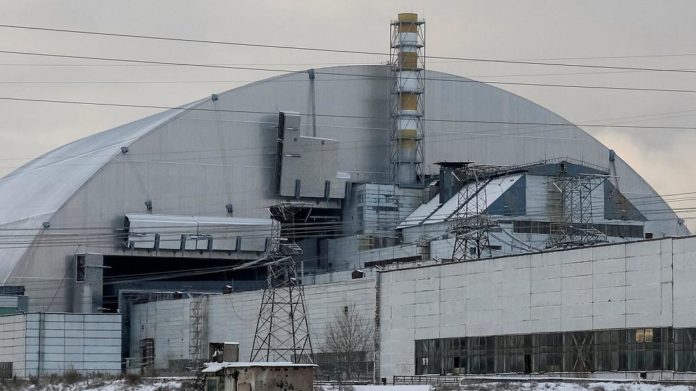
Our journey does not end here, and we eat in the city of Pripyat.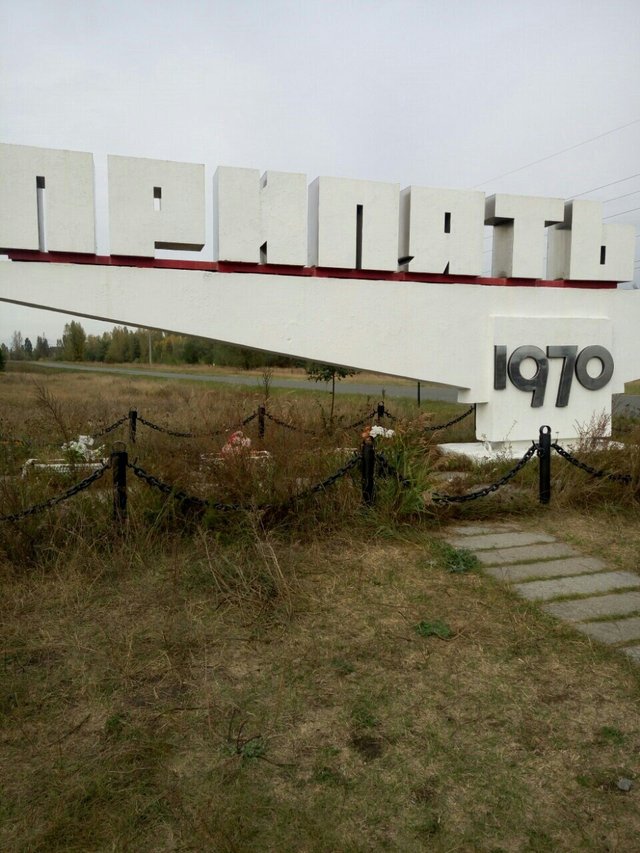
So we are in the city))) 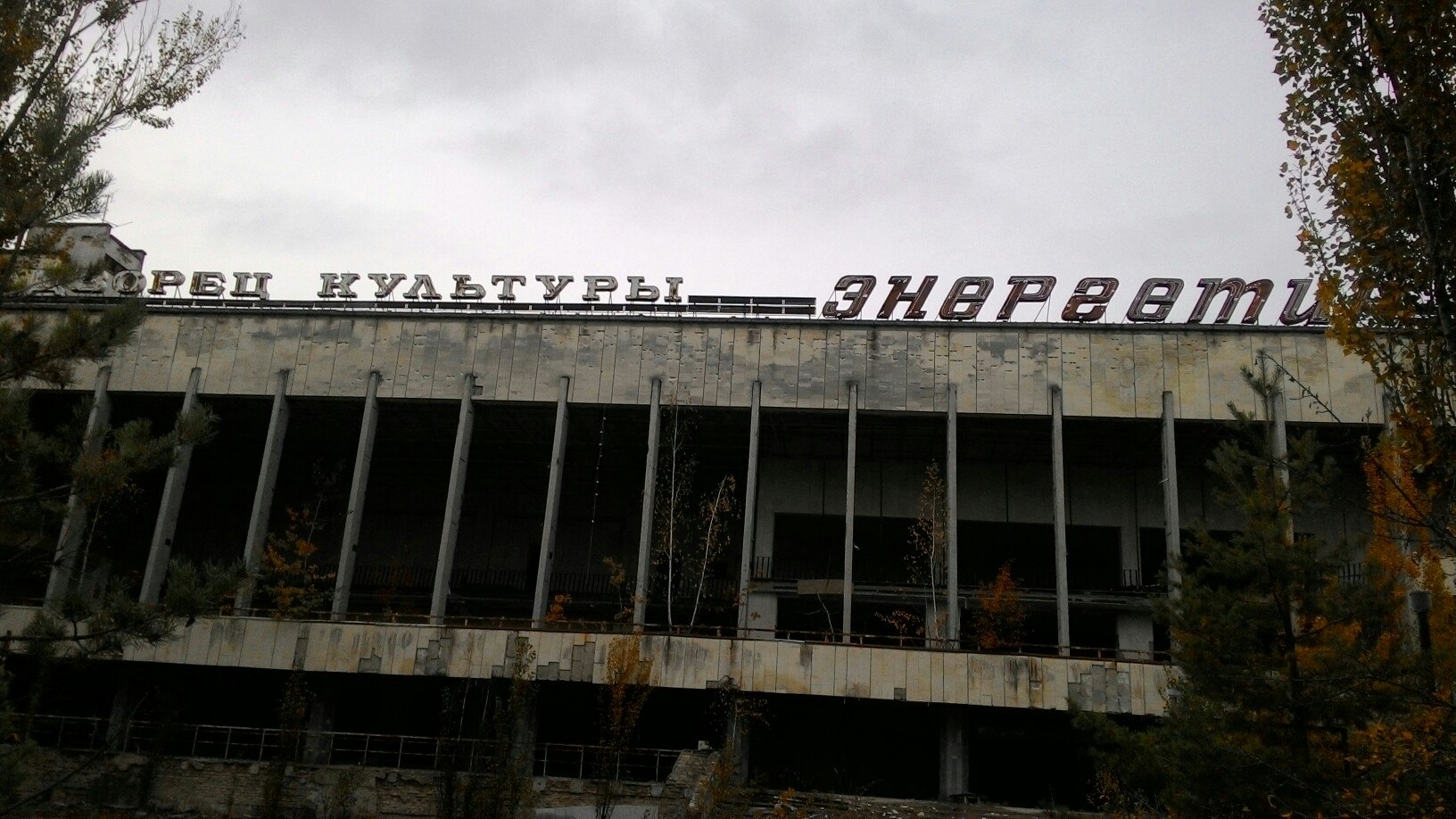
Pool
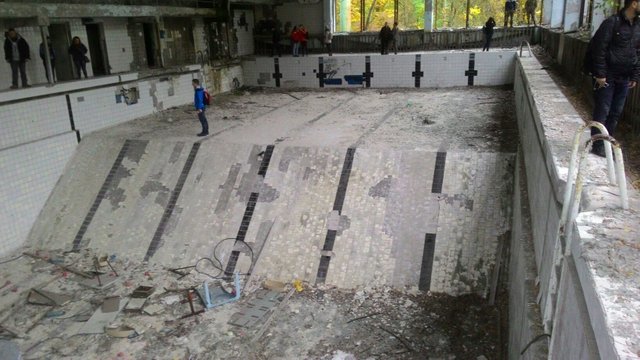
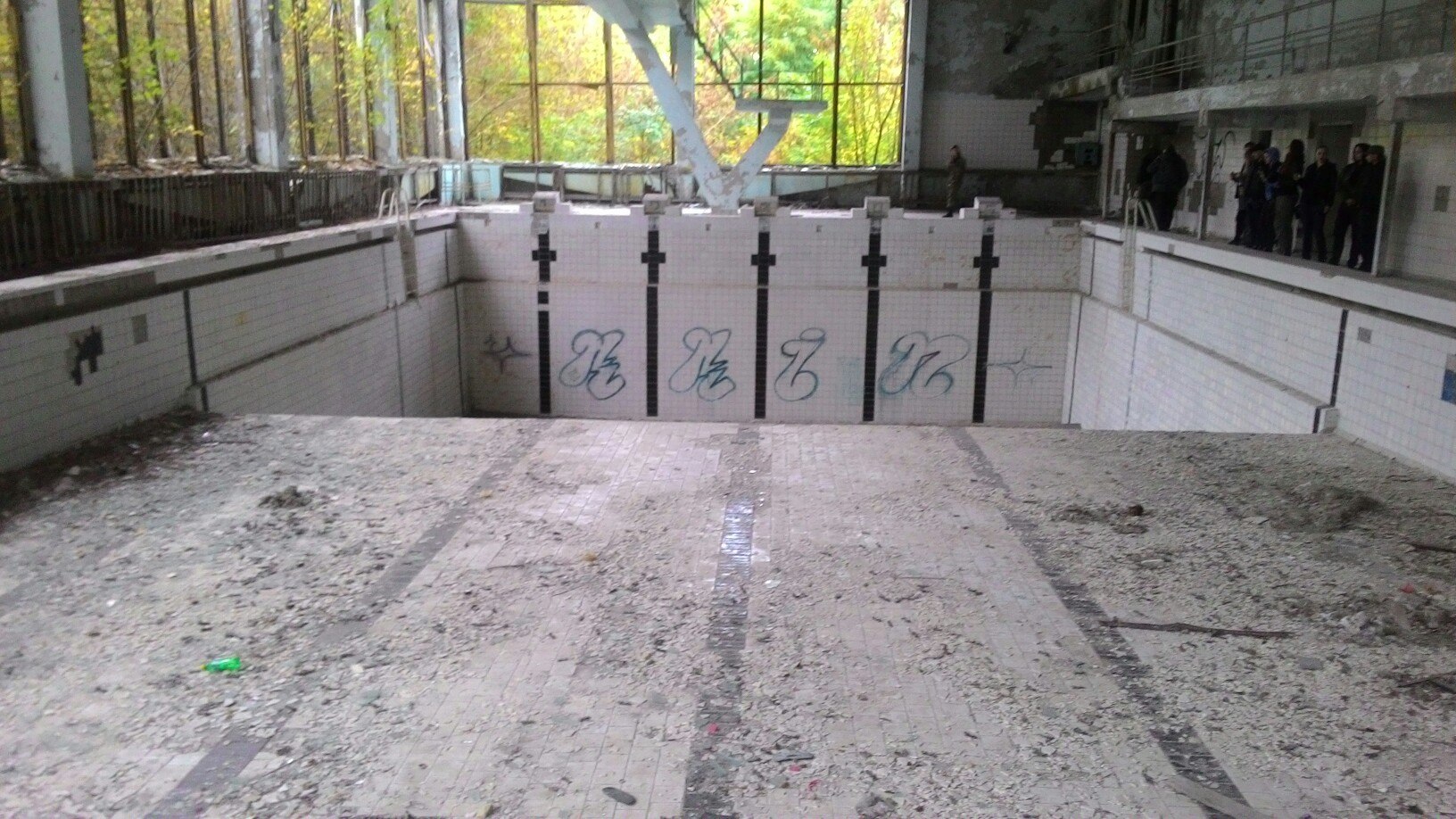
A lot of gas masks in the school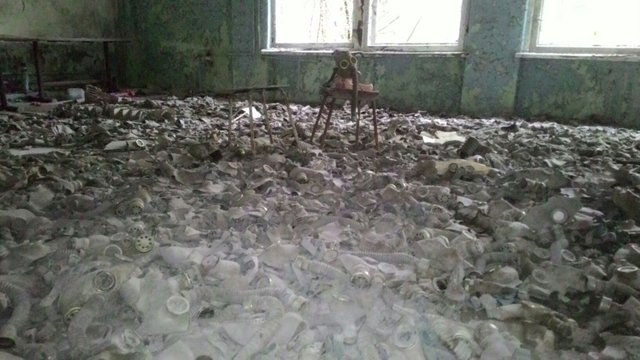
Ferris wheel
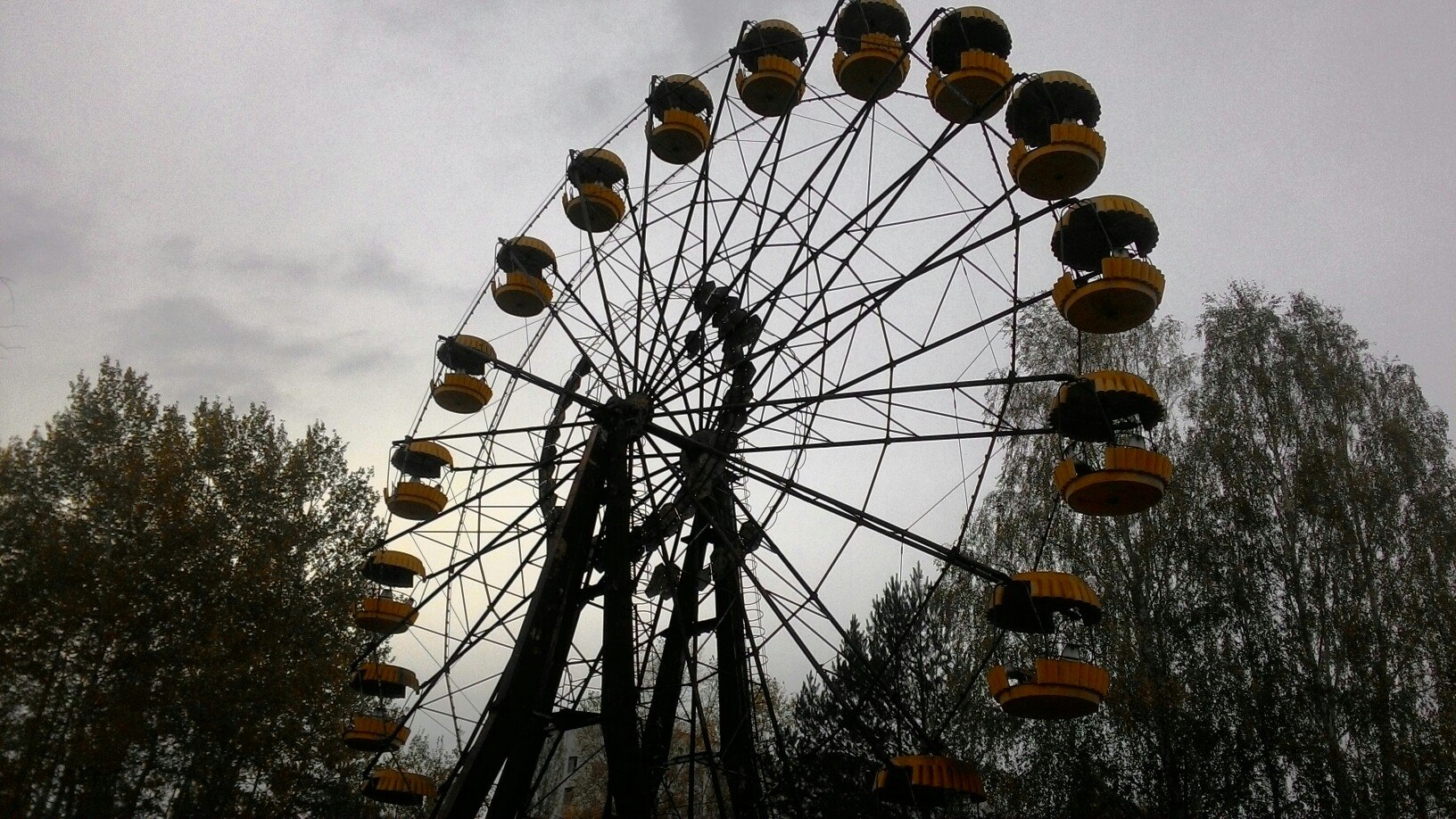
And finally we are on the roof of the largest building in the city where the view is opened which can not be conveyed in words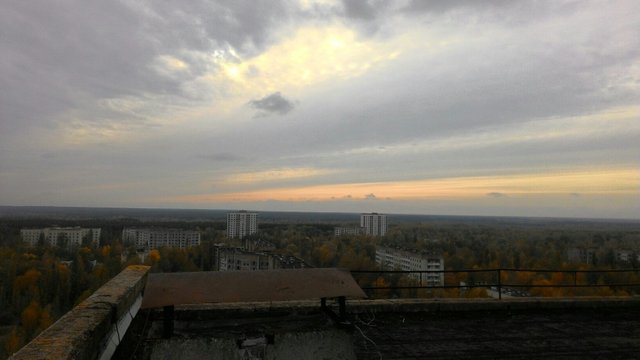
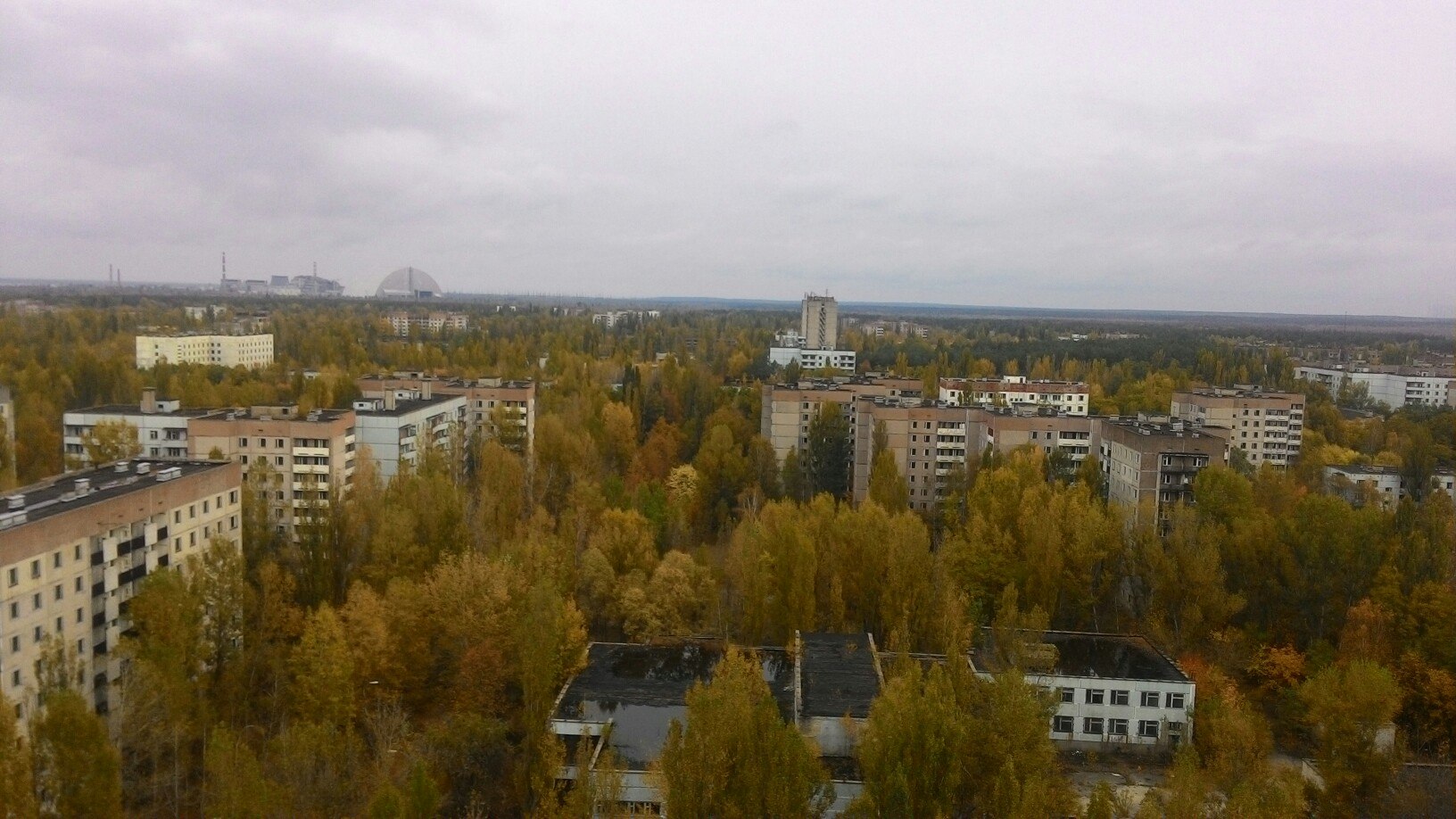
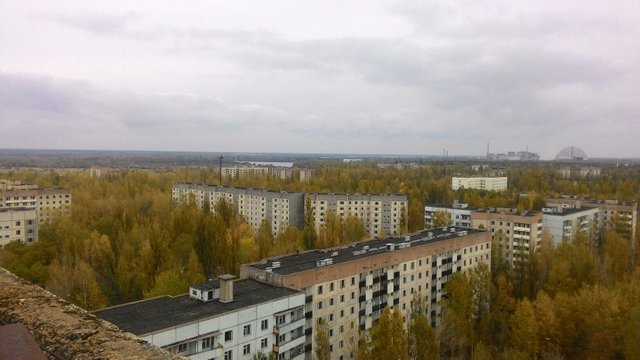
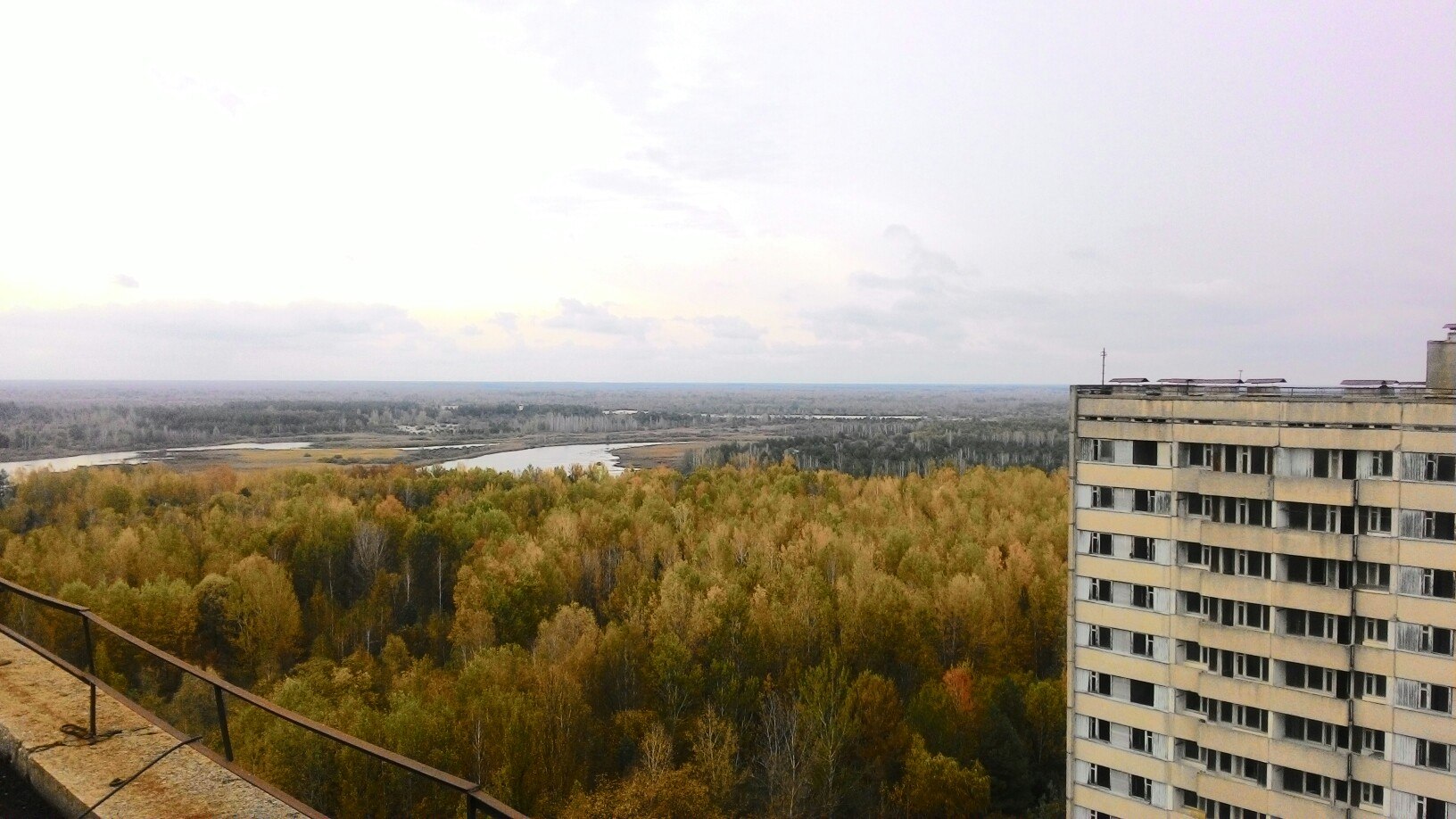
Unfortunately I want to end my trip on this. Do not judge strictly my first publication and wish me luck)))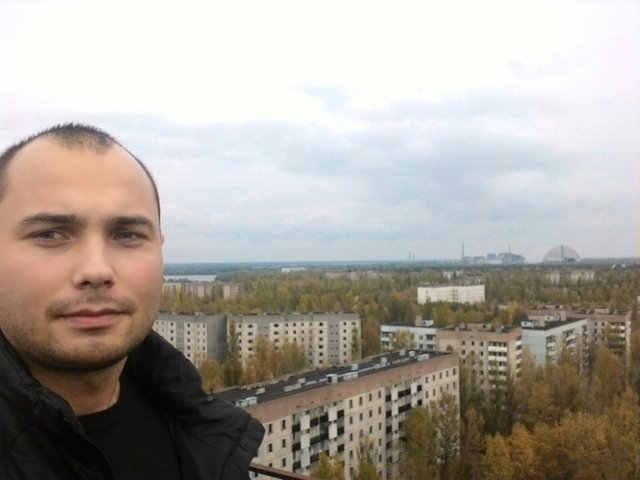
"This year marks the 30th anniversary of the accident at the Chernobyl nuclear power plant, which occurred on April 26, 1986. "
uhhhhh copy and paste?
The trees and other vegetation seem to be doing fine.